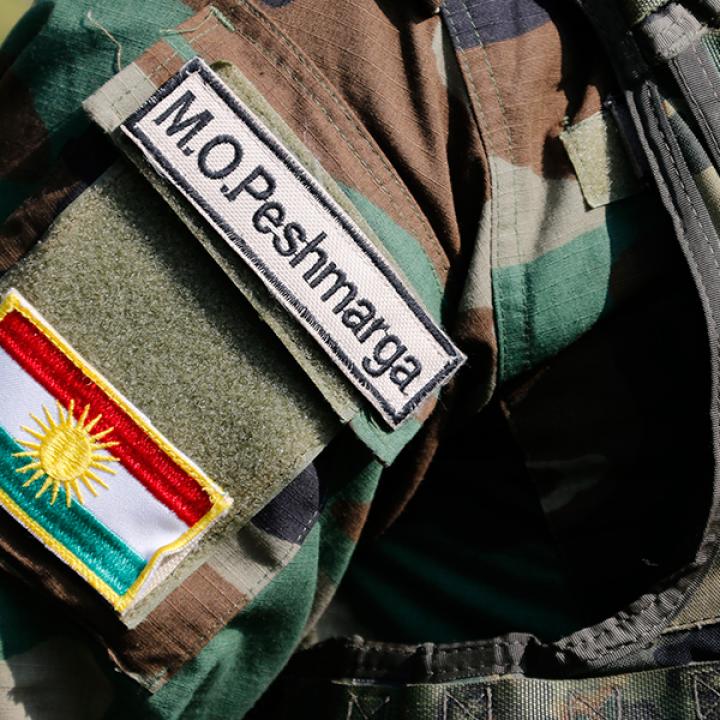
- Policy Analysis
- Articles & Op-Eds
Rocket Attacks on Erbil: Part 2
Also published in Crisis Response Council Perspectives

The U.S. response needs to get more specific, while the KRG and Baghdad need to patch up their urgent security differences and stop entangling them with broader territorial, constitutional, or budgetary issues.
Much discussion of the recent rocket attack on Erbil, which killed or injured half a dozen civilians at the airport and near the U.S. consulate there, abounds in misconceptions. First, such an assault was not “unprecedented”; a similar one, though on a smaller scale, occurred as recently as last September. So, if left unchallenged, these attacks will almost certainly recur before too long.
Second, the “mystery” of who did it is not really mysterious at all. Compelling circumstantial evidence points to the Asai’b Ahl Al-Haqq militia—through one of its many fictitious front groups who claimed responsibility, “Saraya Awliya Al-Dam.” Third, the whole debate over whether Iran ordered this attack is mostly beside the point. For Iran clearly has the power, if it is directly threatened, to stop almost all such attacks, as it demonstrated during the entire period from October of last year until mid-January of this one.
Fourth, the recent tendency in Washington to view such incidents as just an obsolete nuisance, and a distraction from the much bigger issue of “great power” or “near-peer” competition with China and Russia, also largely misses the point. China and Russia, not just Iran, will watch the American response carefully, and gauge their next moves on the larger international chessboard accordingly.
Fifth, the initial coverage and commentary regarding the latest Erbil rocket attack sometimes got sidetracked into arguments about a possible connection with Turkey, given recent tensions with Iraqi Kurdish, Arab, or even Yazidi militias over the PKK presence in nearby Sinjar (Shingal). It is true that some of the same Hashd militias have lately stepped up their profile and presence in that area. It is also true that better coordination between the KRG’s Peshmerga and other security forces there would help mitigate threats from either Turkey or the PKK. But there is no evidence that the attack on Erbil had anything to do with any of that. Rather, it clearly appears to have been another move in Iran’s proxy tactics of pressuring the U.S. and its Iraqi hosts to part ways, while rushing into sanctions relief for Tehran.
From this perspective, the responses to the Erbil attack so far are a mixed bag. On the positive side, U.S. officials spoke out quickly, forcefully, and at a very high level, with the Secretaries of State and Defense both denouncing the attack and vowing to maintain the U.S. strategic partnership with Iraq and with the KRG. This was correctly complemented by a multilateral diplomatic approach, including supportive statements from European and UN officials.
But on the negative side, U.S. statements have so far avoided any specifics. A better idea would be to say, first, that any plans for further drawdowns of American troops in Iraq, and their replacement by forces from other NATO countries, are now off the table. Second, that any thoughts of lifting or easing sanctions against Iran are now on indefinite hold until Iran stops these proxy attacks. This would avoid repeating the earlier, costly mistake of trying to isolate the Iran nuclear issue from all its other misbehavior around the region—in effect, succumbing to nuclear blackmail. And third, that any such attacks on any friendly targets, not just lethal attacks against Americans, will henceforth be included in this calculation. This will erase the harmful impression that the U.S. somehow accepts non-lethal attacks against Americans, or even lethal attacks on its local partners.
Also, too often overlooked in this discussion, the responses of both the KRG and the Iraqi government could be improved. They both understandably face tremendous cross-pressures: from each other, and from Iran, Turkey, internal militias, economic crisis, and their own aggrieved populations. Nevertheless, the responsibility for security is primarily their own—which means that they need to patch up at least their bilateral differences on urgent security matters faster, and stop entangling those issues with broader territorial, constitutional, or budgetary ones.
Finally, to the extent that both Erbil and Baghdad still want U.S. and other Western support, they should refrain from egregious anti-democratic behavior, such as assaulting peaceful protesters or jailing journalists. That kind of provocation is not just unnecessary and embarrassing. It also undermines their international standing, leaving them both more at Iran’s mercy and inviting more attacks like the one just seen in Erbil.
David Pollock is the Bernstein Fellow at The Washington Institute and director of Project Fikra. This article was originally published as part of a Crisis Response Council online discussion.


